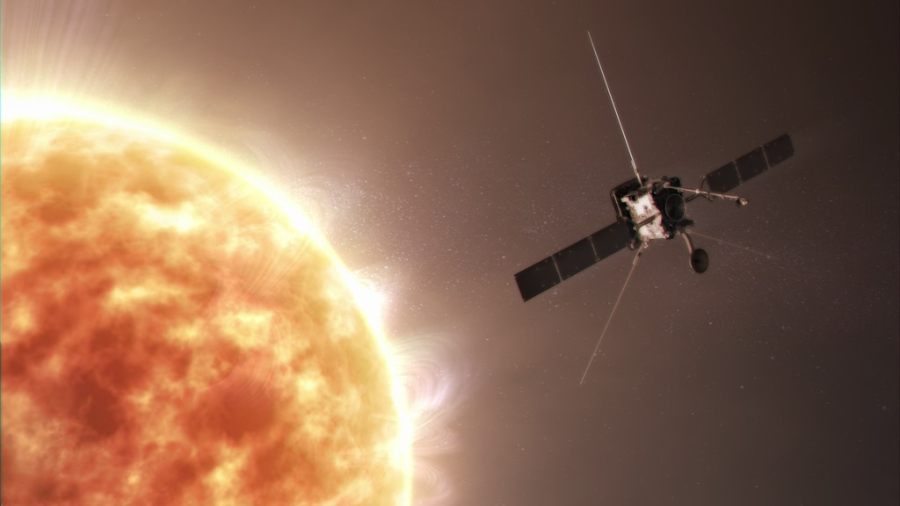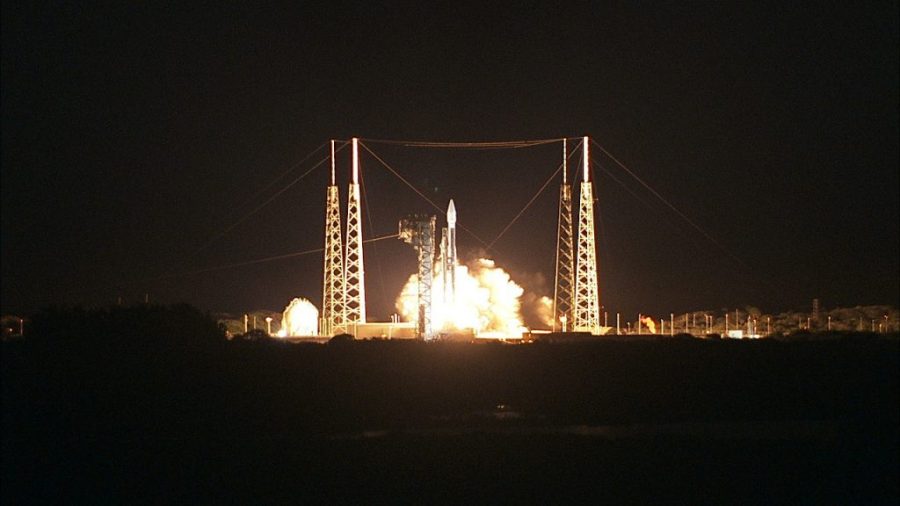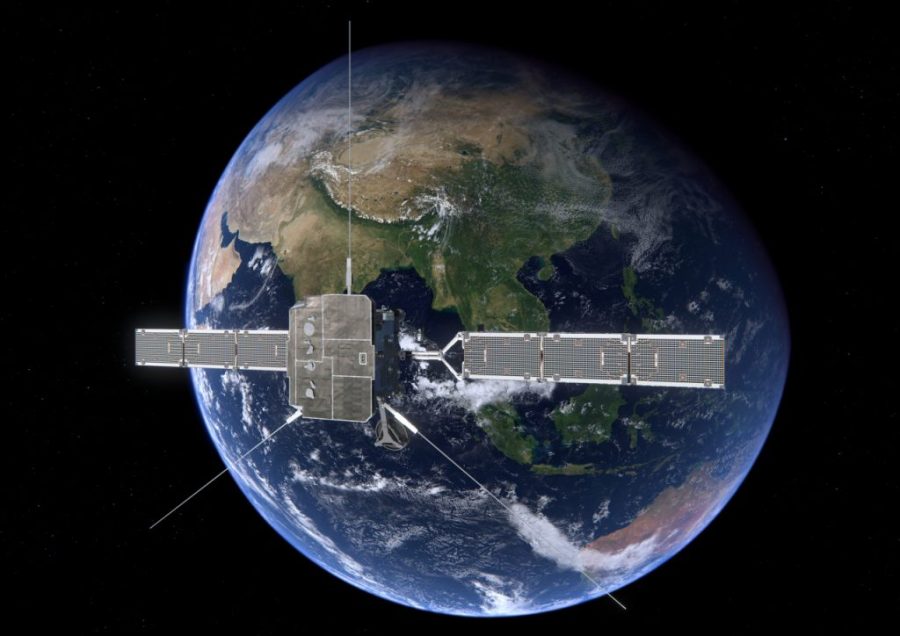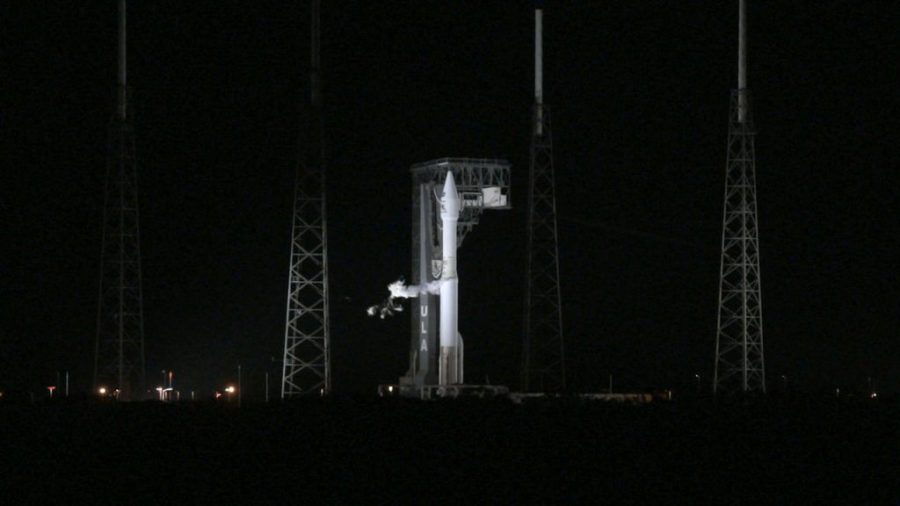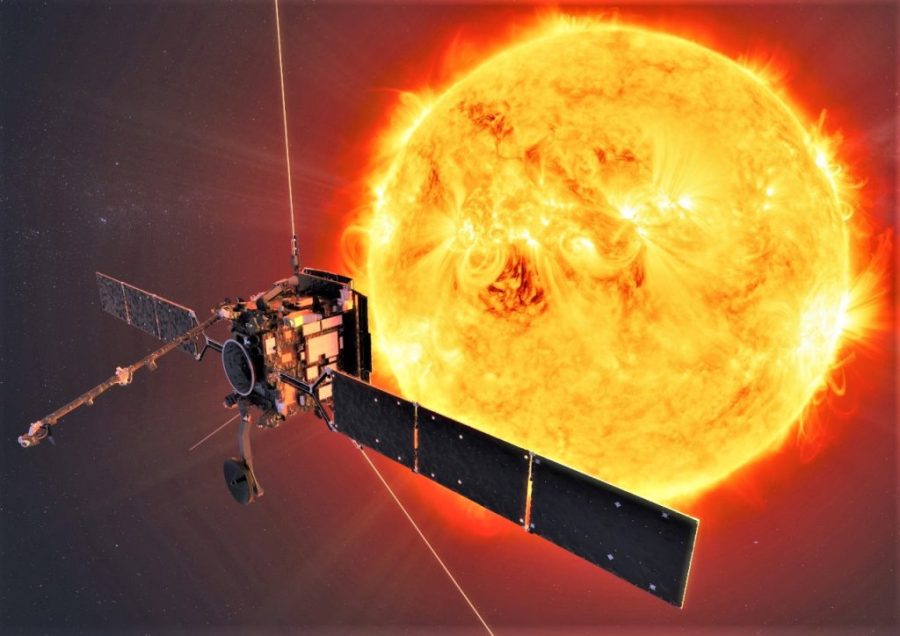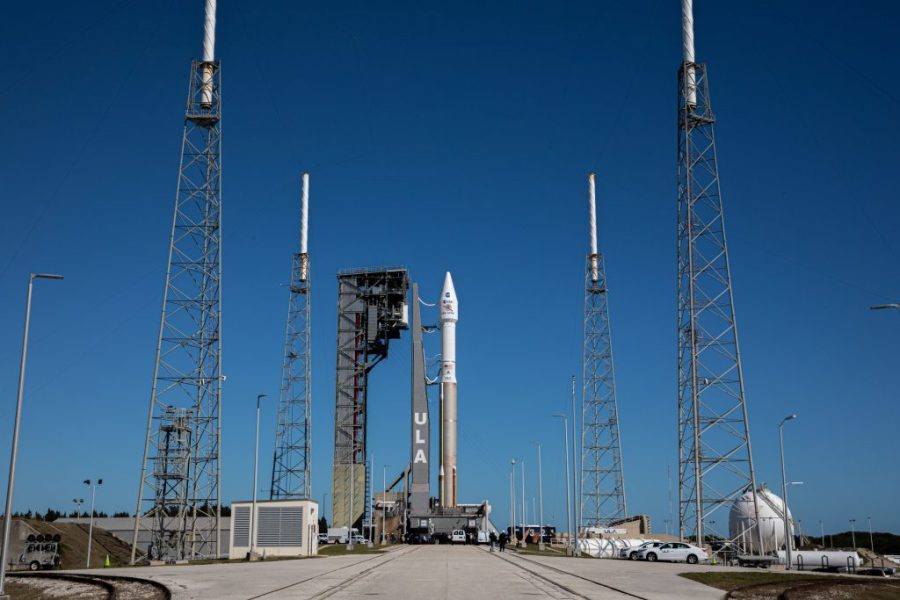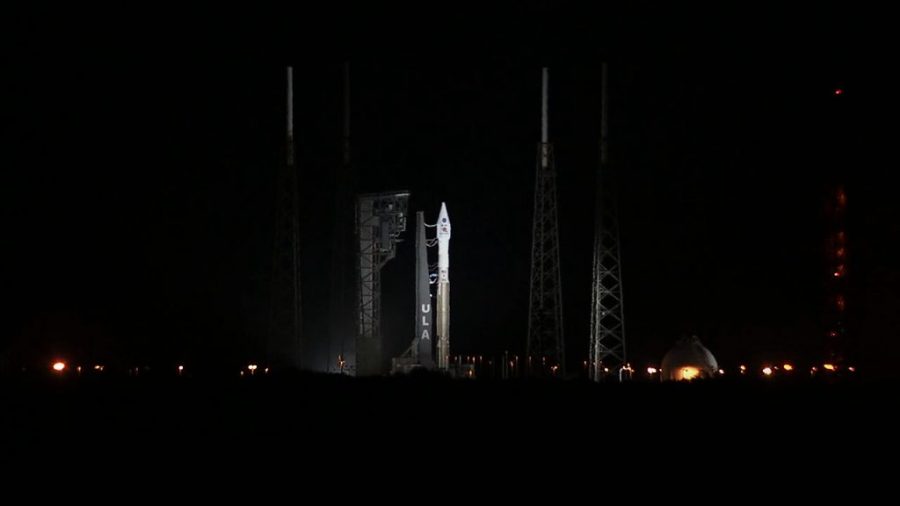The first of two burns for the Centaur upper stage is underway following burnout and separation of the Atlas booster. This is an approximately eight-minute burn. The payload fairing, having protected the spacecraft in the early minutes of flight, has separated and fallen away as planned.
Centaur Burn Underway; Payload Fairing Jettisoned
